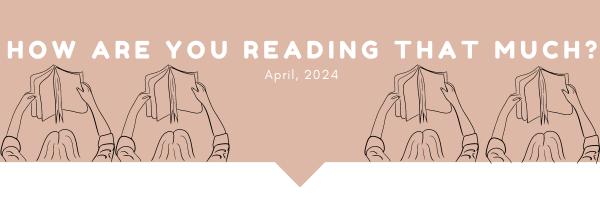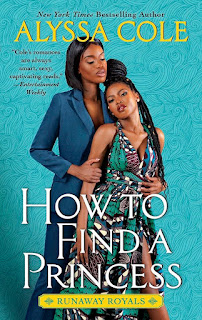How are you reading that much?
I'm always fascinated by reoccurring discourse, which was the impetus for the In My Opinion (IMO) blog series. This month I am sorting through the 'how are you reading that much' discourse.
My first attempt to wrap my brain around the conversation was to narrow down the number that often prompts the outrage. I asked folks on Threads/Instagram these questions 'What's the number of books that tend to trigger 'you aren't reading that many books' discourse? Is it a 100, 200, or another number? I've linked the Threads post if you want to read through the comments. After combing through the comments here's the breakdown.
- 0-52 normal no suspicion
- 53-75 supportive and encouraging
- 76-100 yellow territory suspicion activated but has a level of believability
- 101-200 some suspicion but with conditions
- 201-300 definite suspicion and lots of opinions
- 301+ no question it's unbelievable
The conversation went on for days and even splintered off into additional posts. I tried as much as possible to stay neutral but some comments stuck out to me. One commenter called the range after 100 books the pearl-clutching scale and, I think they might be on to something.
Now that we know where the suspicion starts let's dive into some patterns I noticed. It also made me think the number is signaling something whether it was intelligence, bragging rights, or something else. What I mean is - reading x amount of books felt like it was your entry into some super secret/exclusive reading club and the rebuttals challenged whether or not you 'belonged' there.
Most common arguments...
- First, people assumed that readers in the >100 range only read. What was pretty consistent was the assumption that these readers didn't have full-time jobs, families, or other commitments which was how they were able to read at the volume. There were a handful of commenters who that mentioned perhaps there might be some type of disability that would support reading this volume.
- Second, at a certain point, commenters also started weighing on the type of format or genre, for instance, a person could only read this much because of audiobooks, manga/comics, and novellas or romance, contemporary fiction but definitely not fantasy.
- There might be some overlap with readers who believe audiobooks don't count as reading in this group. Just a thought!
- Third, in the 200 range, it was pretty consistent that comments were related to the quality of reading and retention. Some commenters even went so far as doing the math for me to prove their point. Readers in this range could not be enjoying every single book they read and they could not possibly remember book details. Here I also had people refer me to creators who personally said they weren't enjoying reading when they read 200+ books a year.
- Fourth, commenters thought readers were outright lying, doing questionable math (counting DNFs or flexing for social media), or skimming. Again, I got a few specific examples of creators who admitted they weren't honest as evidence that folks in this group were more likely not telling the truth.
Now the juicy part of this Thread was that for every naysayer, there was a rebuttal. I saw this most often for the argument in the 100-200 range. Readers did have lives and were reading at a 'higher' volume. Some readers had to be creative with their time because of their responsibilities, but they found ways. What was the most intriguing pattern was readers in the 100-200 thought it was believable from 100-250 (for the most part) but may have had some suspicion at 300. So it wasn't an all-or-nothing some suspicion still existed.
So what did I learn?
- Most people had some suspicion of readers who read more than 100 books, particularly if it was earlier in the year.
- Some readers pointed out a progression of believability from congratulations to apathy, then to suspicion once you surpassed 100.
- For those who were suspicious their belief was rooted (I think) in their own ability to read that much and how they shared their rationale was one of or a combination of the 4 above arguments.
- Readers who read 100+ were more likely to believe a reader could read however much they stated. These readers often shared their how, almost akin to showing your process or defending their ability to read as much as they did.
- But there was one group who did not care and were pretty adamant about letting people read at whatever frequency they wanted. They didn't even care if someone fudged their numbers. This group didn't see the point of divvying up the format because to them audiobooks, printed, and ebooks, all counted and that was also true if the person read graphic novels, children's books, etc.
My takeaway is that I want people to read and find time to read. For the most part, people can acknowledge the benefits of reading, so it's lost on me why anyone would be concerned about someone reading too much. One thought here is that when the conversation veered into suspicious territory, it felt a bit judgmental. I saw one subpost that readers who felt they had to defend their reading numbers appeared guilty. As in, why do you feel the need to defend your number?
So to wrap this post up, all these things can be true but the reoccurring conversation but we aren't always having the same conversation. Can some mental health issues occur while simultaneously experiencing the joy of reading? Or could some creators misrepresent their numbers while others aren't? It's giving, a bit of an illusory truth effect- the truth is assessed through your experience and a heavy dose of dichotomous thinking 👀.
I don't want to be flippant because there is a really valuable commentary on reader burnout and hyperconsumerism but I'm not sure anyone has made a really compelling case that reading 200 books equals insert your counterargument. Every time the discourse pops up my initial response is Who am I to question if a person is dissaccotiating or fudging numbers? But more importantly, if you've read 100 books, you figure out a way to add another 50, 100 "if that's important to you". Do you get my drift? And for this reason, it is conceivable but I'm not going to check. I also think the quality of the reading experience may change if you read 10-100 books, but if we're being really honest, some books are more memorable than others.
Do I think, people read 300+ a year? Yes, I do. I personally can't, but I don't have the aspirations to. It doesn't mean it can't be done. But, friends I want people to read what feels comfortable to them whether it's 10-500. I don't live your life and we use our time that makes sense. Period!
Happy Reading!


.png)

Comments
Post a Comment
Thank you for contacting Weekend Reader, I will be in touch as soon as I read your comment. Happy Reading!